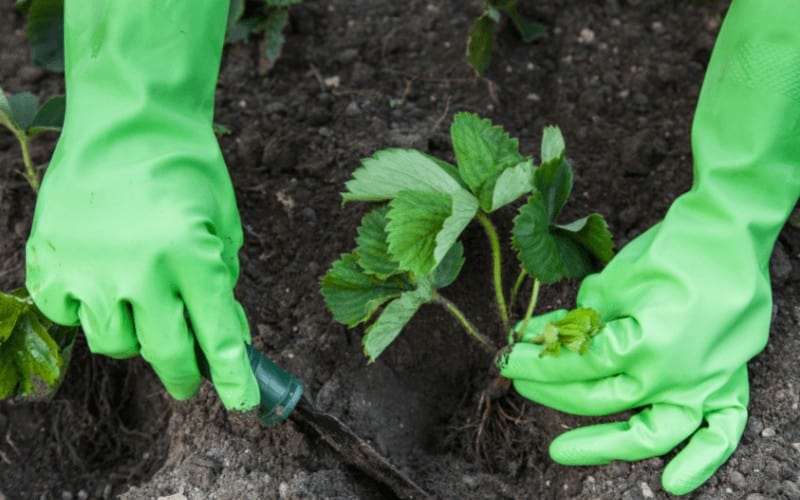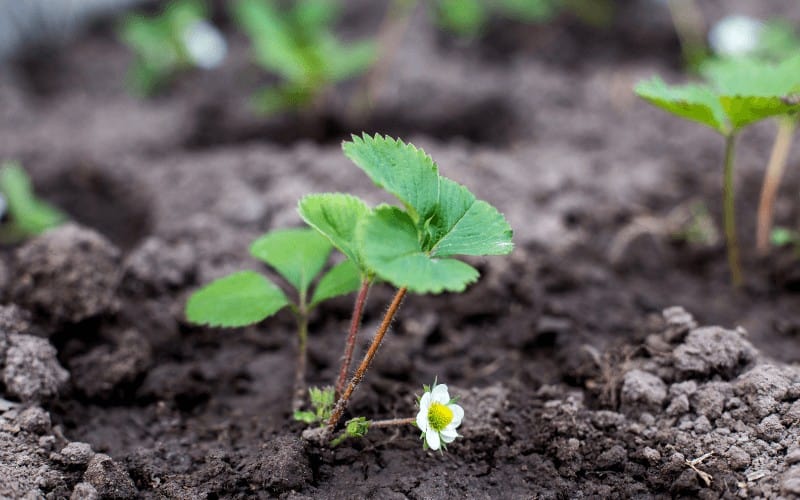As with many plants, strawberries need a lot of water and very fertile ground to grow. Coffee grounds are a perfect addition to many plants, but do strawberries like coffee grounds? Yes, strawberries thrives very well with coffee grounds.
You can add coffee grounds to your garden where you planted strawberries, and we're going to show you exactly how to do that shortly.
Strawberries are quite easy to grow and they produce sweet fruits, which are used for different purposes. While growing strawberries in your garden are easy, you need to be aware of certain things that could help to achieve a great yield.
Some gardeners even plant strawberries inside containers, and it's still all good. Below, you will learn how to use coffee grounds on strawberry plants.
Table of Contents
Do Strawberries Like Coffee Grounds?

Apparently, they do - strawberries like coffee grounds. The nutrients delivered by coffee grounds are among the essential nutrients needed by strawberries.
However, it's not like these nutrients don't naturally exist in the soil, but adding coffee grounds boosts the quantity; thus, causing your plants to grow better.
Basically, even when you don't add coffee grounds to your garden, the strawberries would still perform well; however, not so well as the ones that were treated with coffee grounds.
It's not only about strawberries, there are actually many other plants that like coffee grounds. Other garden plants such as roses and hydrangeas also like coffee grounds.
Roses like coffee grounds because it makes them stronger and ready for the winter season, while hydrangeas like coffee grounds because it increases the soil acidity level, which in turn causes hydrangeas flowers to turn bluish.
So, basically, coffee grounds are an ideal fertilizer for most gardeners. However, it is advisable to always apply coffee grounds in moderation.
Adding excess coffee grounds to hydrangeas may not cause any serious effect, but adding too much coffee grounds to roses can kill the plant roots. Now, what about strawberries?
What do Coffee Grounds do to Strawberries?
Generally, coffee grounds are used by gardeners for one particular reason, which is, to increase soil acidity, as well as add more nutrients into the soil.
Coffee grounds are actually rich in different minerals and nutrients that plants need to grow healthily.
While nitrogen remains the main nutrient in coffee grounds, they also deliver the following nutrients: calcium, phosphorus, copper, and magnesium.
Apparently, these nutrients are good for virtually all kinds of plants. So, when coffee grounds are poured out on strawberries, what happens?
Well, coffee grounds increase the acidity of any soil they are applied to, and strawberries like soils that have high pH ratings. Studies show that strawberries tend to do well in soils with a pH between 5.4 - 6.5.
Nutrients such as nitrogen, phosphorus, and potassium are the main nutrients required by strawberries, and they are all available in coffee grounds. This makes coffee grounds seem more like a perfect fertilizer for strawberries.
When we talk about coffee grounds, we're practically referring to both used and fresh ones because they are rich in the same nutrients.
The major difference between used and fresh coffee grounds is the acid level. As you may guess, fresh coffee grounds have a higher acid level than used coffee grounds.
How To Add Coffee Grounds To Strawberries

There is no adverse effect for adding too many coffee grounds to your strawberry plants. The more grounds you add to the soil, the higher the acidity of the soil, and this is good for strawberry plants.
Literally, just like hydrangeas, adding too many coffee grounds to the soil does not cause any bad effects.
Regardless, it is yet advisable to apply coffee grounds moderately to any plant. There are two major ways of adding coffee grounds to the soil, and they are explained below.
1. Add the Grounds to your Compost
One of the most recommended ways to adding coffee grounds to your garden is by adding them to your compost. It is entirely safe to mix coffee grounds with other materials you have set aside for your compost.
When added to compost, it is much easier for the grounds to soak into the soil and deliver the nutrients they possess.
2. Sprinkle and Water the Garden
This is self-explanatory. If you do not want to add the grounds to your composts, you could sprinkle them all over your garden (not necessarily too close to your plants) and water the garden afterward.
The watering would make the grounds mix with the soil and the nutrients would be absorbed by your strawberries.
What More?
Some other people practice liquid fertilization, where they create what is called "coffee grounds tea."
This practice involves soaking the coffee grounds in a gallon of water for a certain number of hours or days and then water your garden with the resulting liquid.
It is important to say that using coffee grounds does not stop you from using actual fertilizer for your plants.
Coffee grounds are simply additional "supplements" to boost the soil nutrients so that your plants can grow healthier and produce more yield.
Apparently, there are other practices you should engage with as a gardener - adding coffee grounds to your garden shouldn't stop any of those practices.
Strawberries need sun and constant watering, as well as require other things to grow and produce the best results.
When to Add Coffee Grounds to Strawberries?
Unlike roses, there is no particular time to add coffee grounds to your strawberries. In fact, you need to do that regularly in order to keep the soil acidity level high at all times.
You can make out a routine on how to add coffee grounds to your garden; it could be monthly, bi-monthly, or weekly.
Conclusion
In conclusion, do strawberries like coffee grounds? Yes, they like coffee grounds because it increases the acidity level of the soil and provides more essential nutrients required for strawberries to grow healthier.
Remember to use coffee grounds in moderation, excessiveness can lead to a super increase in the soil acidity level, which is likely to cause more harm than good.
You can also dig the soil and pour your ground into the hole as a means of adding them to your garden soil.




